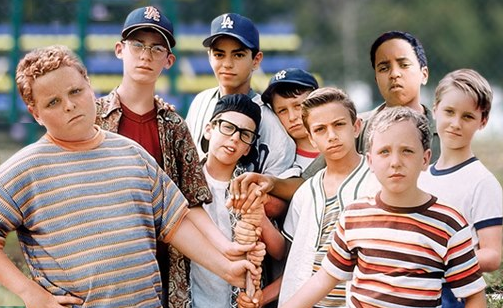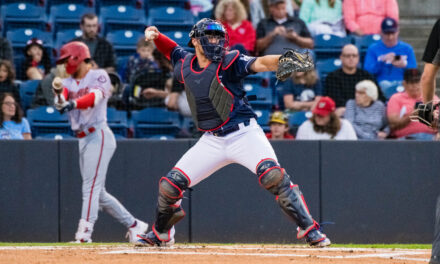
“Valdespin knew that was coming. I don’t think it’s fair to say that since we didn’t hit one of the Pittsburgh hitters that he doesn’t have a friend. The notion that he was hung out to dry I think is a mistake. I’m not telling you he’s the most popular guy in the clubhouse, but I don’t think he was hung out to dry.”
* * * * * * * * * * *
There is a problem with the current Mets. It is a problem of morale and a malaise of camaraderie that is potentially far worse than I think management and maybe even the players realize (if they did they would do something about it). It is a problem that transcends talent and infringes on motivation, resolve, and cohesion.
When I was a kid in Queens, 98th street Corona to be exact, there were kids on the block that no one liked. We’d scrap and scuffle with them on a weekly basis it seemed like … but if anyone from outside the neighborhood came around to pick on them we’d chase them off every time … even though we didn’t like them much. Why? Because we didn’t want those outside kids thinking they could come around and bully us.
This is all about mindset, attitude, reputation.
Do the Mets wish to be the sort of team that may show up the opposition and when they get beaned they thank their adversaries for teaching them a lesson?
Or
Do the Mets want to be the sort of team that may occasionally showboat, but if you bean them there will be hell to pay?
With a plunking, you miss by a few inches and it’s a broken wrist. You miss by a foot and it’s a life threatening concussion. Is that really worth whatever slight a bat flip may have incurred? No. That’s why you have to go beaning for beaning, every time, benches warned, end of story. Your guy learns his lesson and you maintain your honor — win/win. Who is to say they won’t go after David Wright next time? It deflates the esteem and morale of the players who turn away. It makes your team look like a bunch of hateful cowardly pansies and it invites even more beanings.
Think of it this way, if you’re enemy is so divided they’re sacrificing members of their own, serving them up on a platter, do you take their platter and ask for seconds? Of course, attrition in your opposition is always a gateway to success.
Valdespin rubs some people the wrong way, he can come off as unusually arrogant, but he’s a kid who is still learning and I was struck by the look of surprise when he got hit. He really didn’t seem to understand why he got beaned. Afterwards, surprisingly, I disliked Valdespin a little less (I’ve actually always rooted for him — he was even on my fantasy team for a while), and disliked the rest of the team (starting with the Manager) a lot more.

There was a certain code growing up in Queens. You didn’t snitch, you didn’t turn your back on your friends (even if they weren’t really your friends – even if they just happened to be with you), you never sided with outsiders, and if someone from the outside did get to you, you got them back hard and fast. That was NY in the early 70’s, and it’s probably still the case in places like Corona, and Flushing, and Jackson Heights, and Bedford Stuyvesant and Bushwick and Flatbush and any number of other places that make up the Mets fan base.
What this team needs, more than anything, is Management that understands its fan base. What we need is more resolve, and less passive aggressive maneuvering. Fred and Jeff Wilpon appear to have taken a critical formative lesson from their initial success in 86 and they’ve run with it to a fault. They’ve insisted on drafting and signing high character players in an effort to head-off the drug infused nightmare that resulted in the collapse of a would be dynasty.
Unfortunately it’s rare to find the sort of “high moral fiber” kid who is also tough enough to navigate the pits and hurdles and barbed wire and needles and pills and seedy motels of a minors to major league career. You need guys who have been through some adversity, who can handle it, who won’t run away and shrink, in spite of all their talent, at the first hint of trouble. In fact, the key to success in any number of endeavors may very well be adversity and how the participants deal with it.
Adversity breeds cohesion.
For any of you who may have had the opportunity to be part of a cadre of individuals who went through some sort of struggle together, whether it was bad boss, a playground altercation, or combat action, you know how it can unify you. There will always be “that time” you remember when you stood up for each other. You come out of it forever knowing you could count on those individuals, you may even call them from time to time even if they live in far away places now, there is always that bond.
On the other hand, if you’ve ever had the misfortune of being part of a group that turned tail and fled, leaving you high and dry … you knew never to trust them again. Groups like that never stay together, they never last, they never succeed.
I once read a quote from a scout that essentially said (paraphrasing), “in any given organization you probably have the pieces to put a championship team together, the trick is knowing how to put the right pieces in the right places.” I believe that. Yes you need a certain amount of talent but every organization has talent, what every organization doesn’t have is the means or wherewithal to maximize it by putting players in situations where they succeed, at the right times, with the right coaches and the right teammates.
In the end, that winning recipe is reflected in that unit that can overcome adversity and stay together without fracturing under pressure, that team that will stick up for one another and support each other and make each other better. They know that they may bicker and squabble and maybe even fight among themselves, but on the field they know they’ll have each others’ backs because they’ve been there before..
That’s what was lost this past Saturday afternoon at Citi field when the Mets watched one of their own get plunked without so much as a glare at the opposing pitcher from the Met dugout.
Collins spoke of lessons learned afterward.
That’s an awfully pricey lesson if that’s the case.














